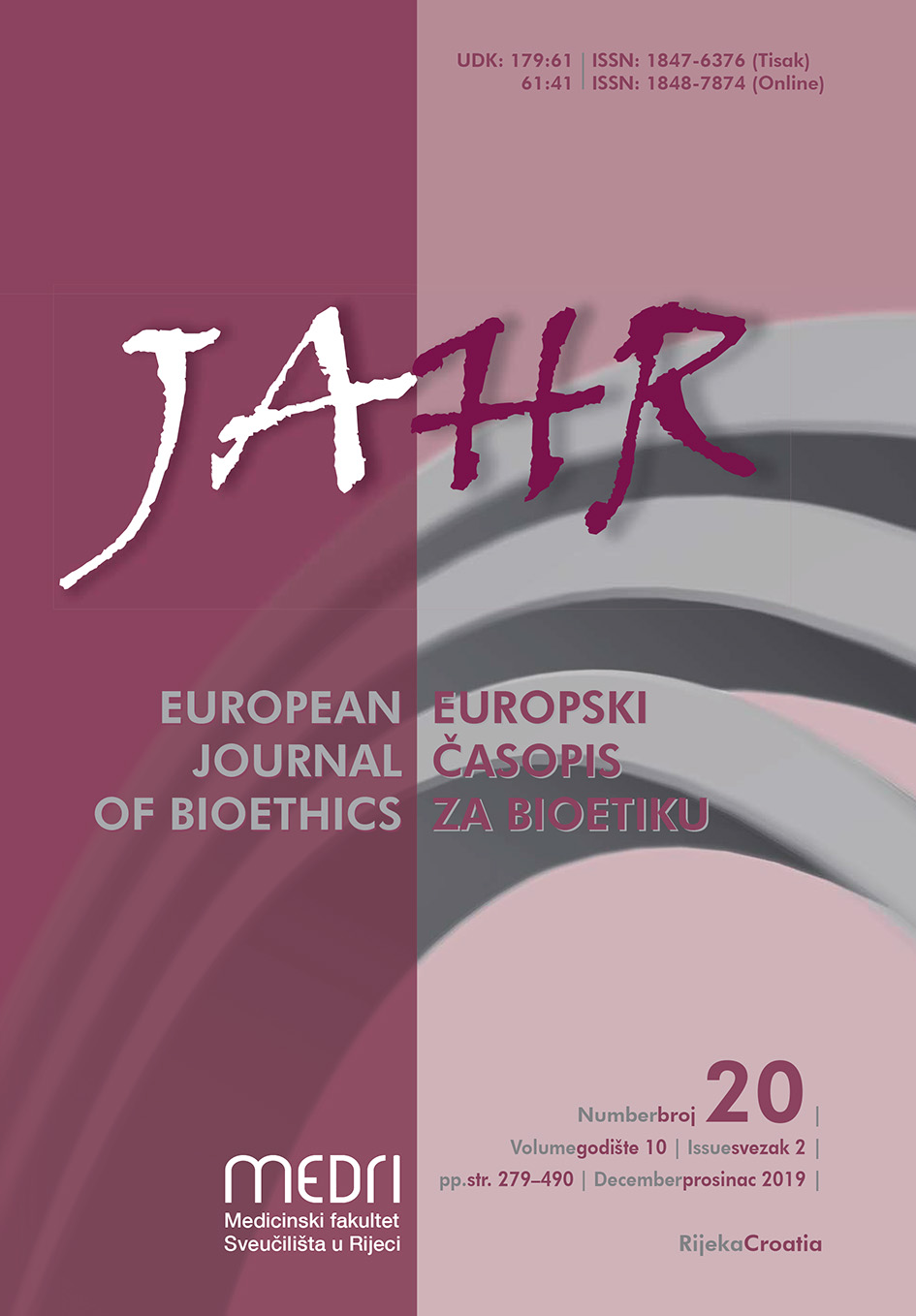Biopolitical Laboratory and the Genetic Modifcation of the Psyche
Keywords:
Biopolitical laboratory, heteronomy of the self, pluriperspectivity, integrative bioethics, modifcation, psyche.Abstract
https://doi.org/10.21860/j.10.2.4
In the era marked by the universal fascination and the naïve, “mesianistic” belief in the salvationary and the utilitarian “demiurgistic” grasp of a genetic engineering and subsequent modifcation of the causal-natural cycle, arises an inevitable question of the critical consideration of the phenomena of the psyche in the context of the given metamorphosation. Namely, in this article, the author will observe the human psyche as a kind of relational, dialectical tangent that vitally connects the mind and body of an individual, both in the cognitive and the material sense. It will also be argued that genetic engineering of it does not require research laboratories in which scientists “play” with mental genes, instead of which the sufcient tools are the ones of “biopolitical laboratory”, with an instrumental methodology marked by the marketing pressures and the media lobotomization, biopolitical manipulation, abiotic education and excessive use of medicaments in the psychiatric treatment of mental disorders. Te above-stated questions dominate the discourse of the article, introducing the orientative knowledge and bioprotectionistic1 teleology of discipline of integrative-bioethical paradigm as a potential scientifc and social platform for rethinking and pragmatically overcoming the issues presented in the discourse of the article.
Downloads
Published
Issue
Section
License
Authors who publish with this journal agree to the following terms:
- Authors retain copyright and grant the journal right of first publication with the work simultaneously licensed under a Creative Commons Attribution License that allows others to share the work with an acknowledgement of the work's authorship and initial publication in this journal.
- Authors are able to enter into separate, additional contractual arrangements for the non-exclusive distribution of the journal's published version of the work (e.g., post it to an institutional repository or publish it in a book), with an acknowledgement of its initial publication in this journal.
- Authors are permitted and encouraged to post their work online (e.g., in institutional repositories or on their website) prior to and during the submission process, as it can lead to productive exchanges, as well as earlier and greater citation of published work (See The Effect of Open Access).



